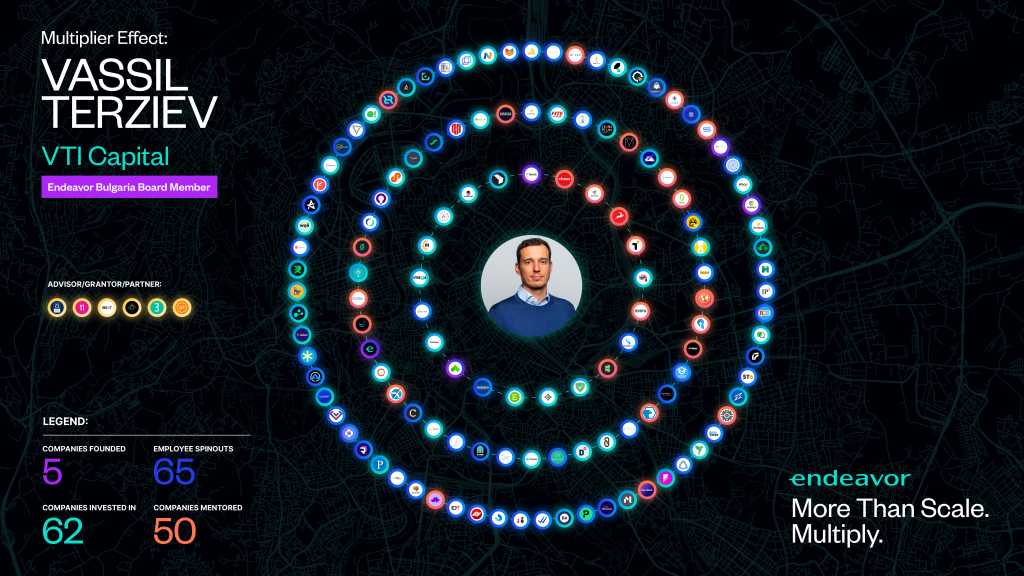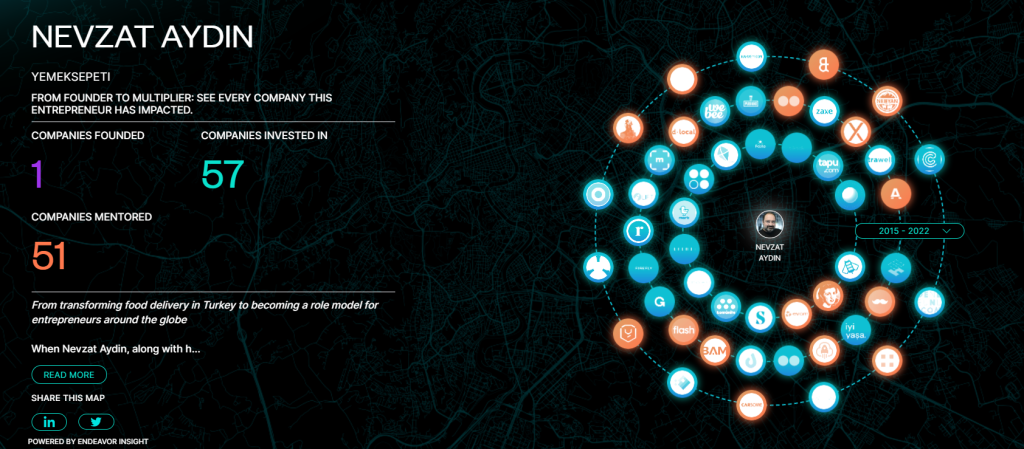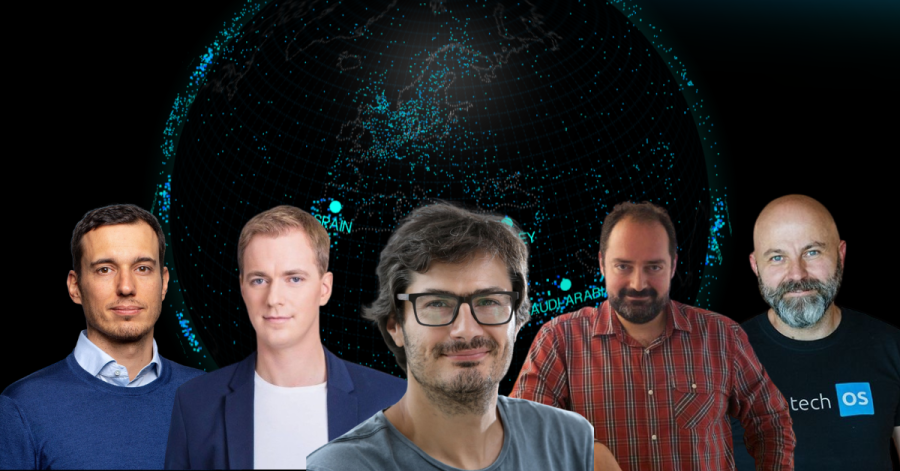For Endeavor the multiplier effect is a phenomenon where the success of one entrepreneur catalyzes the success of others. This can happen through investment in startups, mentorship, or simply by inspiring others to venture into entrepreneurship. The importance of this effect is amplified within startup ecosystems, which are communities of entrepreneurs, investors, and other stakeholders working to support new businesses. When successful entrepreneurs invest in these ecosystems, they help create a supportive and collaborative environment.
The Multipliers of CEE’s Tech Ecosystems: Entrepreneurship Case Studies
Vassil Terziev, Bulgaria
Vassil Terziev, a current candidate for mayor of Sofia, significantly influenced the Bulgarian startup scene with the sale of Telerik for $262.5 million in 2014. Subsequent to that, as a managing partner at Eleven Ventures between 2017 and 2023, he invested in notable companies such as Payhawk, Bulgaria’s first unicorn, and Quantive, which secured $120 million in funding in 2021.
In addition to these financial contributions, as shown in a recent mapping by Endeavor Bulgaria, Terziev has been active in mentoring over 50 entrepreneurs, investing in 62 companies, and fostering the creation of 65 employee spinouts from Telerik. This wide-ranging participation indicates the depth of his commitment to his home country’s entrepreneurial landscape.

Sergiu Negut, Romania
Sergiu Negut stands as a strong influence in Romania’s startup scene, most notably as a co-founder of FintechOS, a company with a global presence spanning more than 20 markets and over $90m raised.
His role extends further through his management of Cleverage.vc, where he focuses on early-stage investments in healthcare startups, including FindMeCure and Medicai. His venture activities are backed by a blend of financial acumen and operational expertise, attributes that make him a solid support pillar in the Romanian startup ecosystem. Through these ventures and his widespread mentorship and engagement with local startups, Sergiu Negut effectively nurtures the entrepreneurial landscape in Romania.
Nevzat Aydin, Turkey
Nevzat Aydin came into prominence with the $589 million acquisition of Yemeksepeti in 2015. After this acquisition, he notably distributed $27 million in bonuses to 115 employees, thereby providing capital for some to start their own businesses.
In addition to his business success, Aydin has had a marked impact on Turkey’s angel investment community. He’s rated highly by university students, mentioned as a top 3 role model alongside names like Steve Jobs and Mark Zuckerberg. His investments span over 60 startups, and he has mentored more than 50 businesses, making him one of the most influential figures in Turkey’s entrepreneurial scene.

Apostolos Apostolakis, Greece
Apostolos Apostolakis has been a constant in the Greek startup ecosystem. He has co-founded a range of ventures and invested in startups like Jeeves and Spotahome, which have gained attention both domestically and internationally.
Moreover, he co-founded VentureFriends, a venture capital fund with 170 million euros across three funds. Through this and his various other engagements, he provides both financial backing and mentorship, making him a key contributor to Greece’s entrepreneurial environment.
Wiktor Schmidt, Poland
Wiktor Schmidt has carved out a significant role in Poland’s technology and entrepreneurial landscape as the co-founder and CEO of Netguru. The company has garnered over $60 million in revenue, employs more than 900 people, and has completed over 600 projects, reinforcing its reputation as a major tech player in Poland. Schmidt’s enthusiasm for technology is evident not just in his work with Netguru but also in his broader commitments to innovation and growth.
In addition to leading Netguru, Schmidt is an active investor and connector in the tech space, linking ideas with capital and mentorship. His role as the chairman of the board at Endeavor Poland since May 2022 extends his impact even further. In setting up the new local office for the global organization, Schmidt has focused on fostering high-impact entrepreneurship in Poland.
Entrepreneurship case studies from these five CEE countries make it evident that the multiplier effect goes beyond just finances; it also includes mentoring and ecosystem-building. The diverse impact of their activities, from Telerik’s 65 employee spin outs in Bulgaria to Yemeksepeti’s role in Turkey’s angel investment community, shows the various ways in which the multiplier effect manifests.








